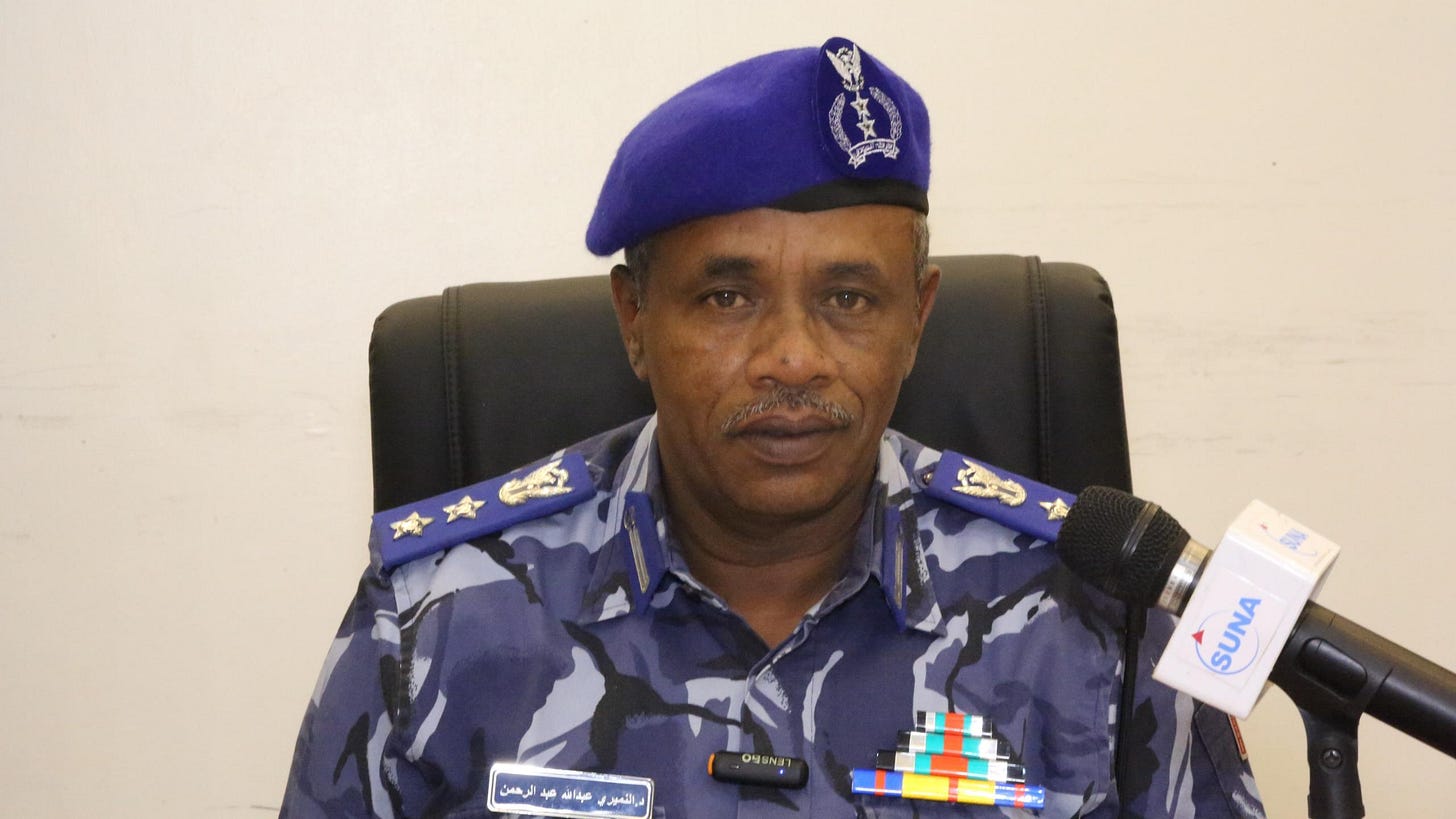Sudanese military targets South Sudanese for mass deportation
Southerners scapegoated for military's recent setbacks
Sudanese authorities have launched a crackdown on South Sudanese refugees living in the war-torn country. Security forces have been arresting, detaining, and deporting South Sudanese nationals through Jabelein, a border town near South Sudan state of Upper Nile. This raises concerns, as many of these refugees fear the authoritarian regime in South Sudan and could face persecution upon return.
A long war (1983-2005) led to South Sudan’s independence in 2011. Since the split, both nations have suffered their own civil wars, with (north) Sudan currently suffering the worst violence. Refugees from each country live in the other country.
The latest crackdown targets long-established South Sudanese refugee populations amid a wave of xenophobic paranoia in Sudan, as the country’s military suffers setbacks against the Rapid Support Forces (RSF), a renegade paramilitary. Military authorities and national security agents, who have sweeping powers of arrest, are accusing foreigners and anti-war activists of actively helping the RSF.
Ethiopians and western Sudanese from the Darfur region are also targeted.
A deported South Sudanese traditional chief, speaking on condition of anonymity from Renk, told Sudan War Monitor the arrests and detentions began on July 2, 2024, in Ad-Doueim, White Nile State, roughly 100 kilometers north of the capital Rabak.
The operation quickly spread to other states, with reports of detentions in Kassala, Atbara, Halfa, Damer, and Gedaref.
The chief described his ordeal, stating security forces held him for a day in Ad-Doueim before transporting him to Jabelein, a White Nile state border town near the border county of Renk in South Sudan. He estimated that around 2,000 South Sudanese were arrested in Ad-Doueim, Kosti, Rabak, and Jabelen, and ultimately handed over to the South Sudanese army at the Joda border crossing.
“I was arrested on July 2 and that was when the arrests and detentions began. Initially, I was detained for a day in Ad-Doueim, and on the night of July 3, I was brought to Jabelein. In a concrete enclosure where other South Sudanese were held, I estimated there were about 700 people. There were approximately three other enclosures, and the total number could be around 2,300. We were arrested and then handed over to the South Sudanese military in Southern Joda. Some detainees are still held because they are suspected of being rebels. Many of those arrested and taken with me have not been to South Sudan since the 1980s. I last visited South Sudan in 1995 to see my father in Malakal and have not returned since. It is a very difficult situation for us,” he said.
Several South Sudanese nationals in Rabak alleged that the crackdown is targeting the Nuer and Chollo communities specifically. The reasons remain unclear, but some believe it is due to the perception that these groups fight alongside the RSF.
In Atbara, Kassala, and Gedaref, South Sudanese refugees reported similar detentions. However, unlike those in White Nile state, they weren't deported. Instead, authorities forced them into the Shajarab refugee camp, which primarily houses Eritrean and Ethiopian refugees. One refugee recounted being transported there along with roughly 1,000 others from Damer, Atbara, and Halfa. He fears thousands more from detention centers could be brought in by Saturday.
“I was arrested in Halfa and was not allowed to see my family or take my belongings. I was told I would meet my family at the destination, and indeed, I did. Now, the UNHCR in the area is telling us that they will issue ID cards allowing us to work, but I don’t know when that will happen,” said the refugee who requested not to be named.
Shajarab lies roughly 85 kilometers southwest of Kassala, capital of Kassala State, and about 40 kilometers south of the Kishm Al Girba dam.
Returning to South Sudan
South Sudan gained independence from Sudan in July 2011. While over a million South Sudanese citizens remained in Sudan at the time, the following years saw a further exodus to Sudan due to war and famine that ravaged South Sudan.
Many who stayed behind in Sudan after independence faced lingering fears of ethnic conflict in their homeland, a fear that tragically proved well-founded when civil war erupted in South Sudan itself in December 2013. This second wave of displacement added millions more to the South Sudanese population in Sudan.
The deportation of South Sudanese nationals raises grave concerns, as many face the risk of persecution upon return to a country they fled. Opposition to President Salva Kiir's authoritarian regime in South Sudan, accused of ethnic killings during the 2013 conflict, is widespread among these refugees.
The detentions and deportations coincide with the Sudanese government establishing a new prosecution office for immigration and asylum offenses. Colonel Numeiri Abdallah, a committee rapporteur tasked with controlling foreign presence, stated the office targets immigration law violations and aligns with recommendations from a recent “foreign presence and identity review workshop.”
He told the state-run Sudan News Agency (SUNA) yesterday that the workshop was conducted in Port Sudan recently and noted that the foreign ministry has contacted Sudanese embassies abroad to compare transaction fees imposed on Sudanese citizens in foreign countries with those on foreigners in Sudan. These comparisons, Numeiri said, will inform adjustments to the fees imposed on refugees.
Rains slow RSF advance
Seasonal weather is slowing the otherwise rapid advance of the RSF in eastern Sudan, giving the Sudanese army some breathing room. After heavy fighting in villages near Sennar City on Thursday, the RSF have since paused their offensive.
Here’s a video showing a convoy of RSF combat vehicles stuck in the mud. Based on the shape of the mountain in this video, we believe it was filmed near in western Sennar, 65-70 km southeast of Rabak in White Nile. (13.1995014, 33.3473847).
News in Brief
The World Food Programme (WFP) is moving food supplies out of its Kosti hub, in White Nile, due to clashes in neighbouring Sennar. It is taking these supplies to other parts of White Nile and South Kordofan and plans to distribute a two-month ration to over 417,000 people.
WFP says it is deeply concerned that increased fighting in Sennar “could sever key routes for humanitarian assistance from Port Sudan and impact our ability to provide consistent assistance to refugees and vulnerable communities. With a risk of famine taking hold in parts of Sudan, it is imperative to sustain the delivery of life-saving aid across conflict lines and across borders.”
White Nile's governor issued an emergency order allowing he government to confiscate four-wheel drive vehicles and motorcycles owned by citizens.
In the first week of July, WFP delivered 447 metric tons of food assistance to El Obeid, enough for 19,000 people for two months. The agency noted, “This was the first crossline delivery from White Nile to North Kordofan since October 2023 and followed extensive negotiations with multiple actors on the ground. Crossline deliveries are critical for WFP to scale up the delivery of assistance in Sudan.”
A fourth convoy of trucks crossed Chad’s Tine crossing last week with food assistance for 165,000 people in North and Central Darfur. Three trucks from this 71-truck convoy were looted by unidentified armed men in Central Darfur, while distributions of the remaining assistance are ongoing.
The United Kingdom announced Friday that it will contribute £2 million support to refugees in Libya fleeing violence in Darfur. Compared to Chad and Egypt, Libya has welcomed relatively fewer Sudanese refugees, but the recent pickup in fighting in North Darfur has increased the flow of arrivals. International Development Minister Anneliese Dodds said the funding will support NGOs providing health, water and sanitation services for up to 150,000 refugees.
At an event in Nairobi, USAID announced that it intends to provide $23 million to the UN Children’s Fund (UNICEF), as part of a larger $38 million commitment to fund programs that help Sudanese children.
Sudanese military intelligence arrested two lawyers in An-Nahud in West Kordofan, allegedly because of their anti-war views.
The Darfur Bar Association says that over 150 people have been detained in Port Sudan and Atbara.





